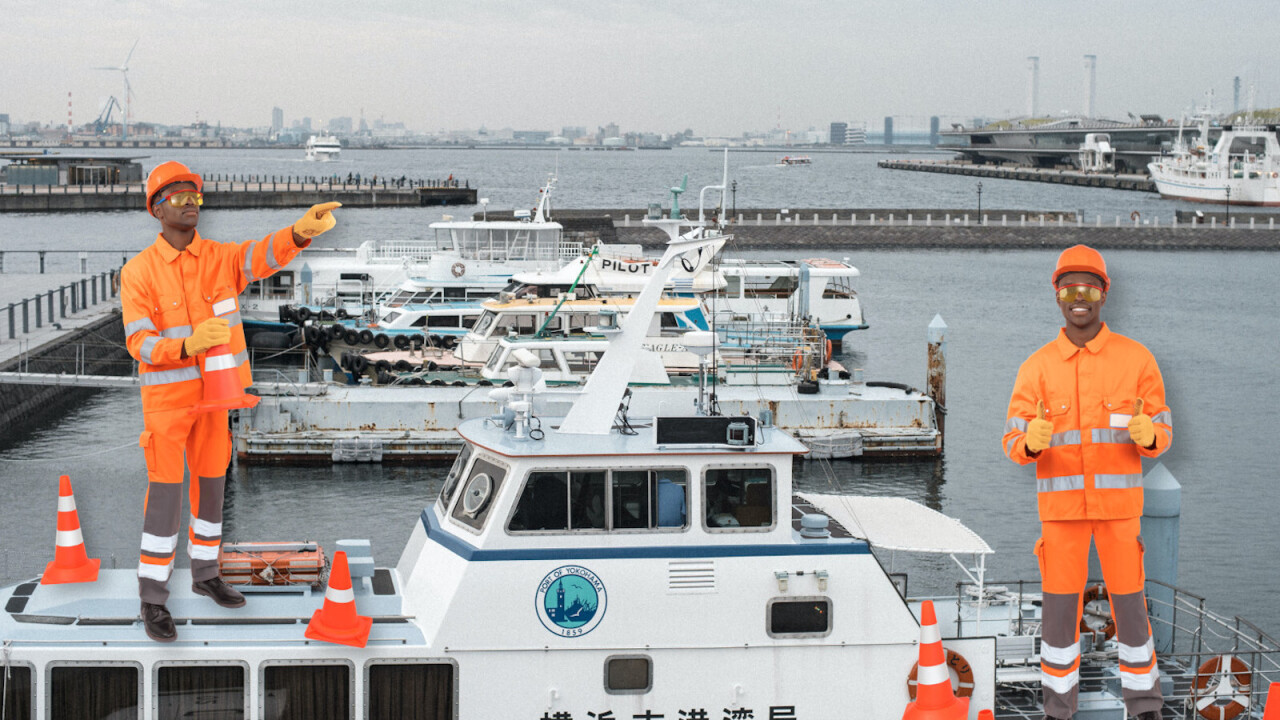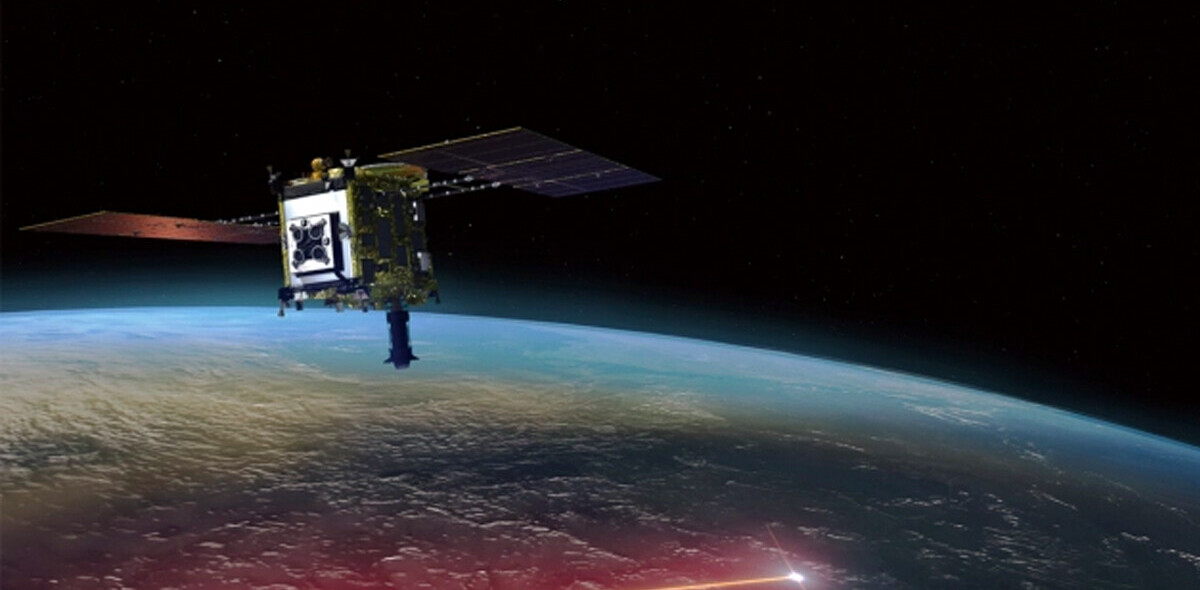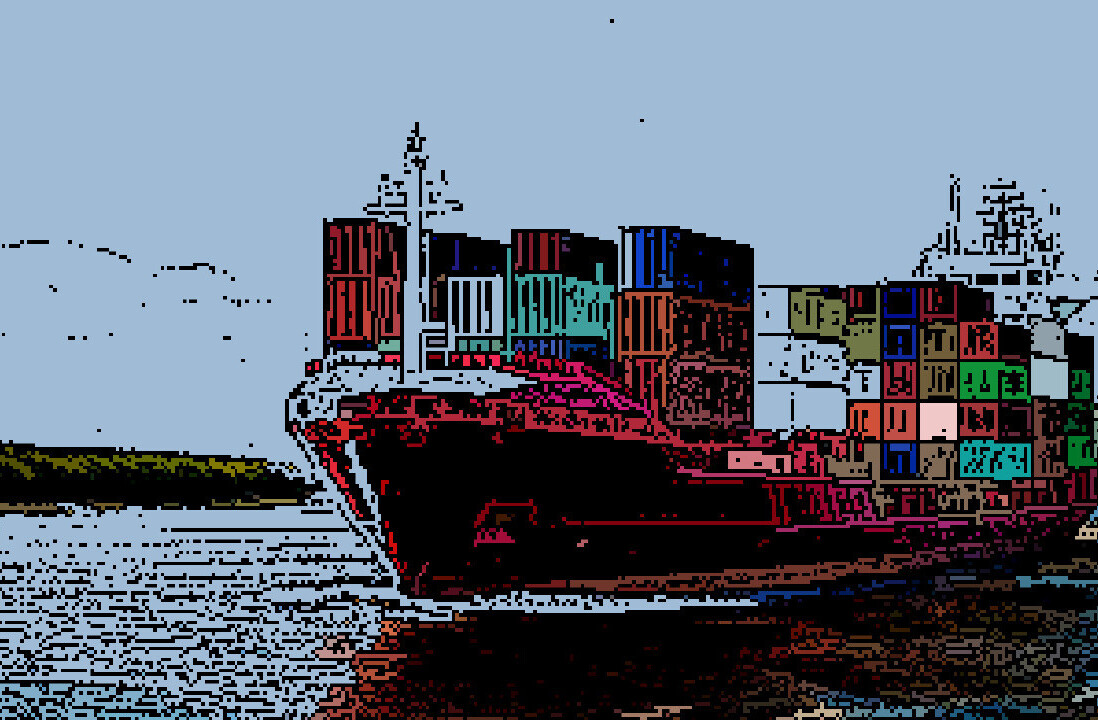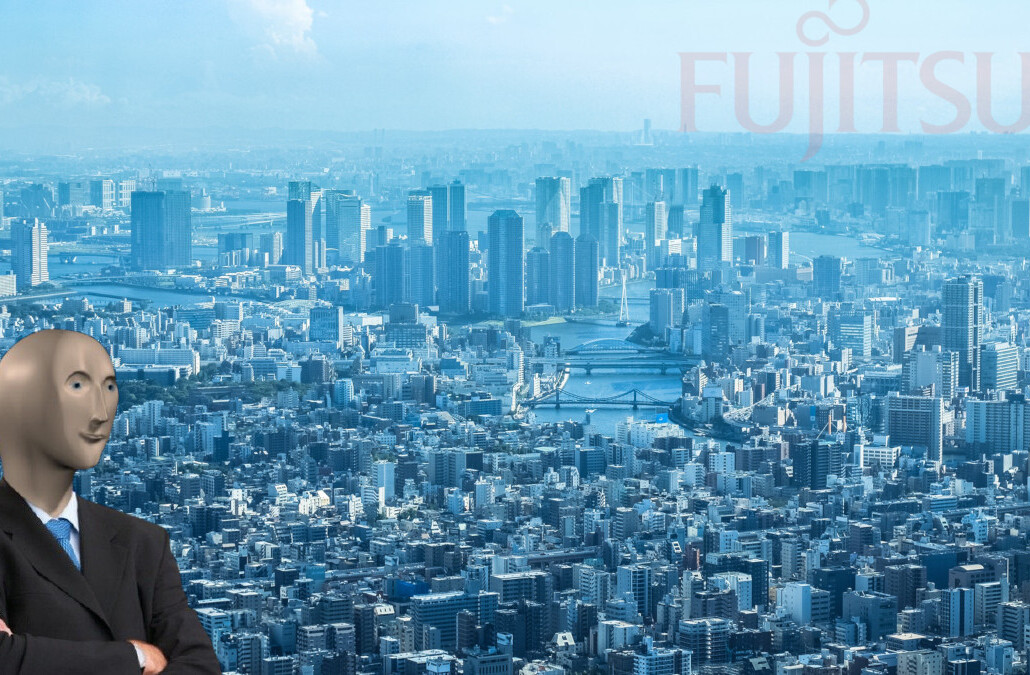
When you think about the future of mobility what comes to mind? Ebikes? E-scooters? Futuristic electric vehicles? Or planes that take off and land vertically? Maybe you should spare a thought for boats.
Large cargo ships transport tens of billions of tonnes worth of goods around the world every year, making them a vital part of global supply chains. Transporting goods by boat is no easy task, but Fujitsu thinks artificial intelligence might be able to lend a hand.
In a trial that ran between December 2019 and March 2020, computer and electronics manufacturer Fujitsu and the Japan Coast Guard was able to successfully prove the effectiveness of AI in preventing collisions between vessels.
[Read: Say hello to Ellen, the electric ferry with 57 times the battery capacity of a Tesla]
Technology using Fujitisu’s Zinrai AI system was able to detect near misses between ships and also predict areas of high collision risk int he Tokyo Bay area. The company added this tech to Vessel Traffic Services systems used by port control authorities, allowing them to better manage the movement of ships through port.
Fujitsu says that using the technology means port operators can identify potential collisions two minutes faster than conventional systems. What’s more, the system enables more accurate and consistent operation regardless of the controllers’ experience, increasing maritime safety.

The AI-powered system also issued nearly twice the number of warnings to ship captains on risk-prone vessels. Port authorities believe this has enhanced maritime safety.
Japanese port authorities say there are over 280 maritime collisions each year, all of which have a knock on effect to supply chains, crew safety, and the environment.
Minimizing maritime collisions is not easy, but Fujitsu’s system certainly seems like it’s taking a step in the right direction.
“The field trial has demonstrated that Fujitsu’s collision risk prediction technology is effective in assisting operation controllers,” the Maritime Traffic Department Japan Coast Guard said.
Japanese port authorities are now planning to continue to develop and implement this technology.
Get the TNW newsletter
Get the most important tech news in your inbox each week.




